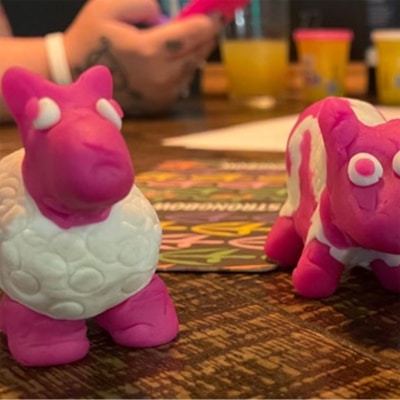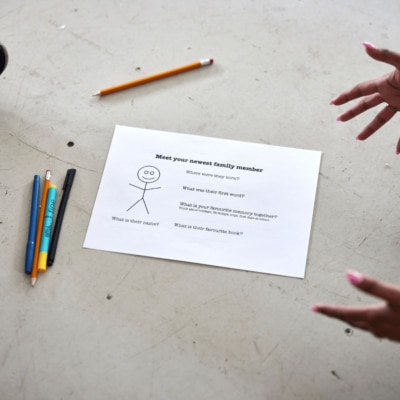What's gained and what's lost when people get to their feet in interactive theatre?
Posted on September 26th, 2013
A piece by Tassos Stevens
Presented at a Show & Tell Salon on Activism
Posted as part of the Network of Coney Magazine 01
What’s gained and what’s lost when people get to their feet in interactive theatre?
Read on for Tassos’ thoughts, and post your own in the comments.
Some of my notes from a last-minute presentation covering a speaker who was ill.
Here are some different models of theatre where you get to your feet:
* the classic Punchdrunk, where you make your own journey through a mostly mechanised playscape, which is too full of cool stuff for any one person to discover. Cue story-swapping in the bar afterwards.
* a model like A Small Town Anywhere, where a roomful of playing audience change what happens through their play and choices, individual and collective.
* a model of adventure, where you might go on an immersive journey, usually out in the world, that might surprise you but the bones of the experience don’t change.
All of these are exhilarating to experience at first. There’s an intoxication that comes I think because you’re on your feet, the action is embodied, and you’re taking what feel like risks continually with the ‘safety’ of the experience.
But that intoxication wears off, as we habituate to the conventions of these experiences, and you understand that there isn’t really much risk. And do we lose the space for reflection? We designed that into the tail of Small Town.
What do we get when we are sitting down? Let’s start with that as the baseline. You’re imagining a what-if presented in front of you, together with all the other people in the room. What if the world were really different? You’re collected together and paying attention together: the communal experience. You’re always wondering ‘what happens next’ because you’re a story-making brain in a story-making space. You’re finding a space for reflection, not just afterwards but in between. But you’re also imprisoned, you can’t move, you can’t do anything that makes a noise, there’s a tyranny of politeness. But then look at the Pit in the brilliant Globe Theatre, it’s a living pit of humanity interacting in many different ways, making it live.
And like many last-minute speakers, I shouted out on Twitter for input. Many brilliant people responded, but picking out here a sparkling thread of conversation between Aliki Chapple (@amaenad) and Clare Duffy(@clareduffy).
@amaenad
I’ve only done a bit, but fresh from a dinner theatre gig last night, I can’t resist..
The notional membrane (it was never a wall) that separates the two realities is charged – aesthetically, erotically etc. and its revelation as a construct is a loss of wonderment, illusion – some sheen of glamour.
One thing I think the audience gains is an ownership of the experience – disconcerting as a degree of freedom can be. Another gain is that it grounds the experience in bodies and breath and space – it is palpable, visceral – there is in theatre the experience of watching which isn’t that different from watching a screen; all light & image. This is flesh.
With that come the attractions and anxieties of any intimacy, managed as they are by the form and the skills of performers. It brings to the forefront the quality of the nonverbal negotiations – extant in all live work between audience & performer. It takes away the audience’s safety too, which is why I think many can find it frightening. And it requires a more fluid relationship with disbelief – not so much suspended, as set aside and occasionally nodded to.
It might be that interactivity replaces the way distance is charged with the ways intimacy is charged. The aesthetic pleasure of watching with that of playing/improvising, and a sense of competition with the performance. the erotics of safe voyeurism with last nights old gents peering down the front of my dress.
@clareduffy
loved @amaenad response. I fink it’s fascinating how many people suspect *it’s all fixed* even when it isn’t and couldn’t be
@amaenad
Maybe they want it to be rigged? it’s reassuring to be unable to affect the outcome?
@clareduffy
yes very likely…& possibly a logic that says ‘Theatre’ = fake therefore it’s impossible for anything *real* there
@amaenad
Of course that : )





